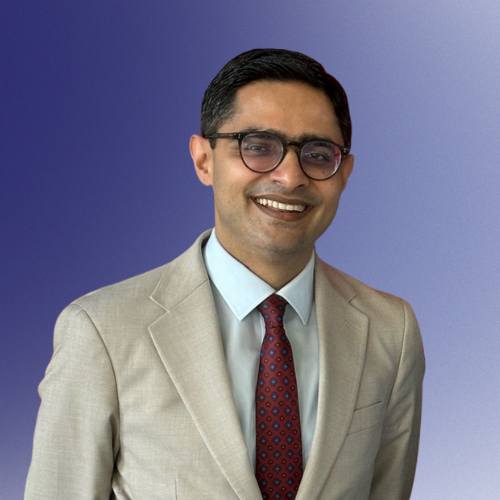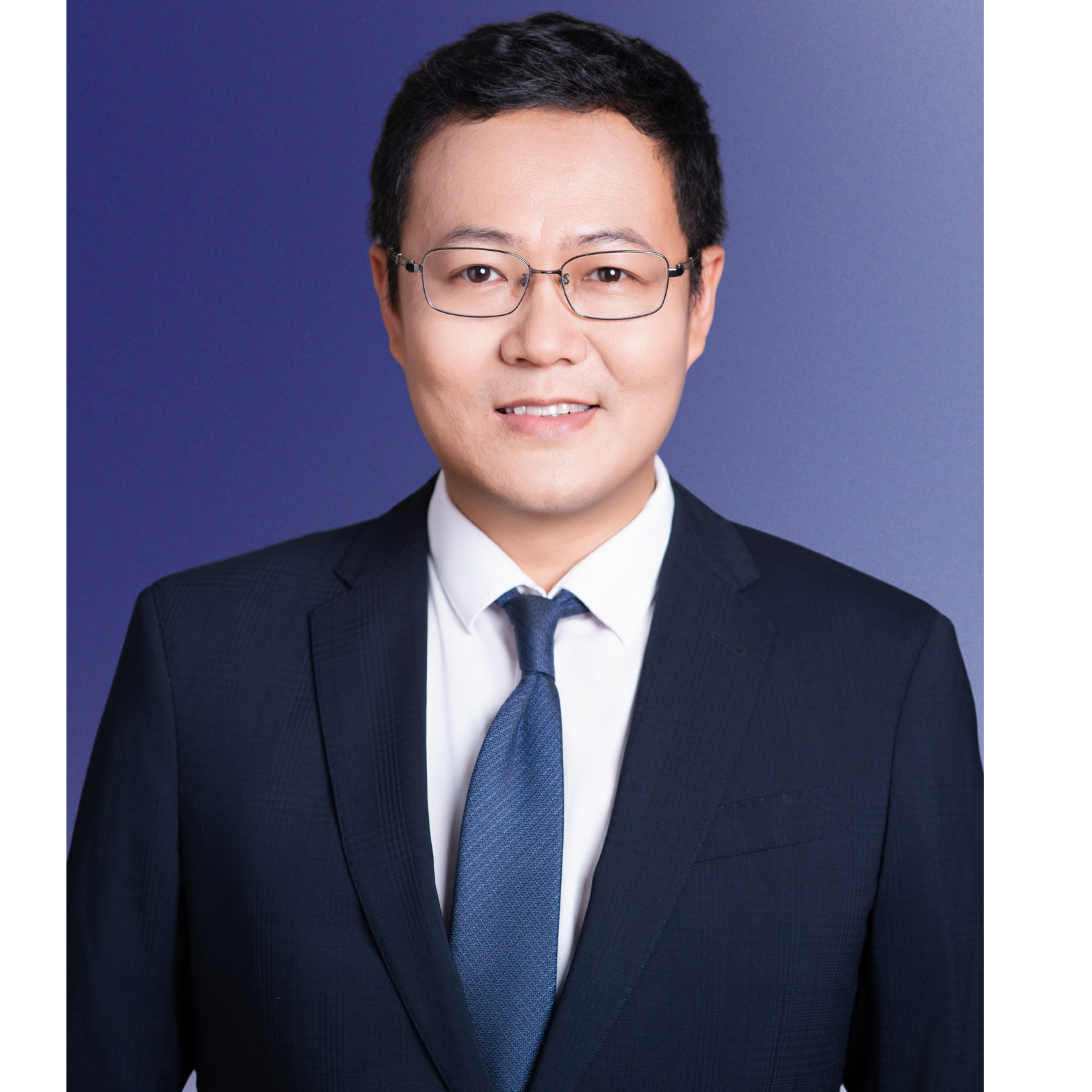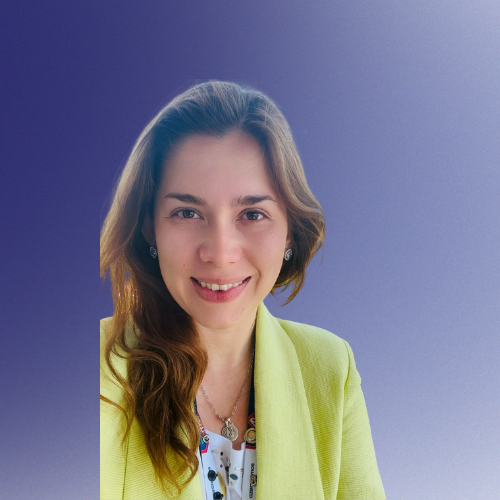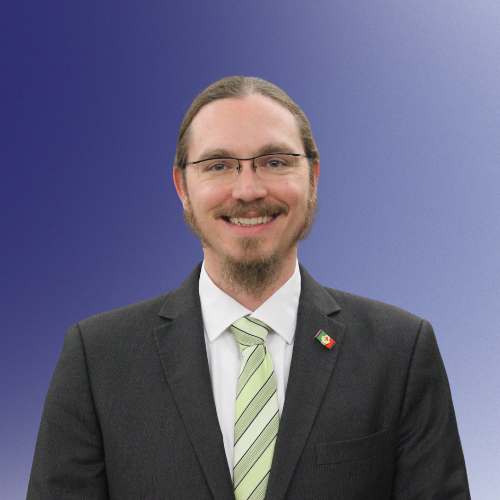Meet the advisors working to ensure lunar activity is guided by shared norms, transparency, and long-term stewardship.
Advisory Board
The Lunar Ledger Advisory Board brings together representatives from industry, government, academia, and related sectors to provide practical guidance on the development and operation of the Lunar Ledger. Board members advise on technical design, data standards, governance approaches, and user needs to ensure the platform is accurate, interoperable, and useful for a wide range of lunar operators. The Advisory Board does not set policy or regulatory requirements; rather, it supports the Ledger’s mission as a neutral, open-access resource that enhances coordination, safety, and transparency as lunar activity increases.
-

Dr. Ulpia-Elena Botezatu
Dr. Ulpia-Elena Botezatu is the Chair of the Scientific and Technical Subcommittee of the United Nations Committee on the Peaceful Uses of Outer Space (UN COPUOS) and Co-Chair of the Action Team on Lunar Activities Consultation (ATLAC). She is committed to advancing international cooperation in space law, security, and governance.
As a Space Policy Officer at the Romanian Space Agency, she represents Romania in major international forums, including the European Space Agency, the European Commission, the EU Space Surveillance and Tracking Partnership, and NATO's Science and Technology Organization, with a focus on space security and the peaceful uses of outer space.
Dr. Botezatu holds a PhD in Engineering Sciences and a Master's in Urban Management, bringing an interdisciplinary perspective to the resilience of critical infrastructure and space situational awareness. She has published extensively on the intersection of space and urban vulnerability, and is currently preparing a book exploring the role of space systems in shaping resilient urban futures.
In parallel, she is completing a degree in international law, with a specialization in space law, aiming to contribute to the development of practical, forward-looking legal frameworks that support sustainable, secure, and cooperative space activities.
-

HASAN ABBAS
Hasan is joining the Advisory Board in his personal capacity. He is currently Co-Chair of the Action Team on Lunar Activities Consultations (ATLAC) and previously served as Second Vice Chair and Rapporteur of the UN Committee on the Peaceful Uses of Outer Space (COPUOS).
As a diplomat, Hasan has worked extensively on outer space affairs, working closely with the United Nations Office for Outer Space Affairs (UNOOSA) and serving as Coordinator for the Group of 77 & China’s Task Force on Outer Space Affairs (2023–2025) in Vienna. He has also participated in the Open Ended Working Group (OEWG) on Reducing Space Threats (2022–2023). His broader portfolio includes contributions to science diplomacy, disarmament, nuclear non-proliferation, arms control, and emerging technologies. He holds a Master’s degree in International Relations and Diplomacy, where his thesis focused on the evolving role of developing countries in outer space governance.
-

Dr. Anna Mittelholz
Dr. Anna Mittelholz is a planetary geophysicist in the Department of Earth and Planetary Sciences at ETH Zurich. Her research focuses on the evolution of planets and moons in our Solar System, with particular emphasis on planetary magnetic fields as windows into internal dynamics and thermal histories.
Anna has contributed to planetary missions, including NASA’s InSight mission to Mars, where she analyzed surface magnetic field data to better understand crustal magnetization and external field dynamics. She is also the Principal Investigator of LunarLeaper, a mission concept that proposes the use of novel legged robotic systems to explore and characterize lunar lava tubes—environments critical for advancing scientific understanding and assessing infrastructure potential for future human exploration.
Her combined expertise in planetary sciences, and active mission development brings a valuable perspective to the Lunar Ledger.
-

Dr. Guoyu Wang
Dr. Guoyu Wang, Dean of the Academy of Air, Space Policy and Law, Beijing Institute of Technology (BIT); Professor, Law School of BIT; Deputy Director, China National Space Administration (CNSA) Space Law Center (2017-); Board Director of IISL (2021-2024).
Dr. Wang has served as a Chinese delegate and legal adviser to UN Committee for Peaceful Use of Outer Space (COPUOS) (2012-), UN Open-Ended Working Group for Responsible Behavior Initiative (2023), UN Prevention of an Arms Race in Outer Space (PAROS) Governmental Group of Experts (GGE) (2023-2024), UNGGE on Emerging Technologies in The Area of Lethal Autonomous Weapons Systems (LAWS) (2024-), as well as a Chinese expert in the UNCOPUOS Long-term Sustainability for Outer Space Activities (LTS) Working Group (2012-2019).
-

Dr. Jonathan Mcdowell
Dr. Jonathan McDowell is an astrophysicist at the Harvard-Smithsonian Center for Astrophysics, where he leads the group responsible for science analysis software for the Chandra X-Ray Observatory. He has expertise in theoretical astrophysics, including background radiation, black hole accretion, dark matter, and active galactic nuclei, as well as observational astronomy involving asteroids, X-ray binary stars, nearby galaxies, AGN, and quasars, with experience across the radio, infrared, optical, ultraviolet, and X-ray bands.
He has further expertise in Earth satellite orbital dynamics, satellite constellations, space policy, and space debris. Jonathan managed the science algorithms team for the Chandra mission and contributed to the design of interoperable multi-mission astronomy data analysis tools fundamental to the CIAO package. He authored one of the first studies on the impact of satellite constellations on astronomy, and wrote a widely read paper arguing for the edge of space to be set at 80 km altitude.
Dr. McDowell holds a B.A. in Mathematics (1981) and a Ph.D. in Astrophysics (1987) from the University of Cambridge. After postdoctoral appointments at Jodrell Bank, CfA, and NASA MSFC, he returned to CfA to work on the Einstein archive preceding his involvement with the Chandra team. His publications address cosmology, black holes, merging galaxies, quasars, and asteroids. He is editor of Jonathan’s Space Report, a free online newsletter founded in 1989, which provides technical details of satellite launches.
-

Marieta Valdivia Lefort
Marieta Valdivia Lefort holds an MSc in Public Policy from the UCL Department of Political Science and is a current PhD candidate at the UCL Institute of the Americas (London, UK). She works at the Royal Astronomical Society (RAS) as Policy and Diversity Officer, and her responsibilities include policy-related work on several areas such as national and international frameworks for protection of astronomy, science policy, satellite constellations and interference on optical and radio astronomy, space science, space sustainability, space policy and law. In addition, Marieta actively collaborates with the Space Court Foundation (SCF) as Associate Director for Operations & Programs for Latin America, and with the International Astronomical Union (IAU) Centre for the Protection of the Dark and Quiet Sky from Satellite Constellation Interference (CPS) as researcher at the Policy Hub and co-lead of the National Analysis Team.
-

Dr. Christopher Newman
Christopher Newman, BA(Hons), PhD is a Professor of Space Law and Policy at Northumbria University at Newcastle in the United Kingdom. He is active in the teaching and research of space law and has published extensively on the legal and ethical underpinnings of space governance. He is regularly invited to lecture in universities and at specialist conferences on space law and policy across the UK and internationally.
Christopher is a member of the International Institute of Space Law and has presented his research on the legal dimensions of discovery of alien life to the Committee on Space Research (COSPAR). He has also been invited to be an observer member of the UK delegation to the UN Committee on the Peaceful Uses of Outer Space. He was appointed Visiting Professor of Space Law at the Open University working on the legal and ethical dimensions of planetary protection. He is an academic consultant to 3SNorthumbria, a Space Situational Awareness (SSA) consultancy company based in the North-East of England. Christopher has made numerous TV and radio appearances in the UK speaking as an expert on space law and policy issues.
-

Dr. Lucy Mason
Lucy Mason is a Director at Capgemini Invent leading on emerging technologies and innovation, especially in the defence, space and security sectors. Her interests include the threats and opportunities posed by AI and machine learning, the internet of things, quantum technologies, futures thinking, and the implications of technologies for people and society. Lucy is passionate about bringing industry, academia, and Government together in multidisciplinary teams to better solve major social challenges.
Lucy is a member of the UK Government’s Regulatory Horizons Council and led their work on the future regulation of space technologies. She is the founder and former Head of the Government’s Defence and Security Accelerator (DASA) which finds and funds innovation to create novel defence and security capabilities. Lucy is Chair of the Advisory Board for SPRITE+, and is on the Advisory Board for the Common Mission Project, Bath University Institute for Digital Security and Behaviour, and CREST Research. She is a Visiting Professor at Cranfield University.
-

Dr. Berna Akcali Gur
Berna Akcali Gur is an academic expert, lecturer, and researcher specialising in international law and policy, with a particular focus on information and communication technologies (ICTs) and outer space. She serves as a faculty member at Queen Mary University of London, where she convenes the LL.M. module on Outer Space Law, educating legal professionals on the legal and governance challenges of space activities. She is also an Associate Research Fellow at the United Nations University Institute on Comparative Regional Integration Studies (UNU-CRIS), contributing to the Digital Governance Cluster.
Her work has been published in leading academic journals, reflecting her contributions to the evolving discourse on digital and space governance. Berna is actively involved in global research networks, including the International Institute of Space Law and the Global Internet Governance Academic Network, where she engages with interdisciplinary communities shaping the future of international law in the digital age.
-

Kaitlyn Johnson
Mrs. Kaitlyn Johnson joins the Lunar Ledger Advisory Board in a personal capacity. She is the Deputy Director of the Chief of Space Operations’ (CSO) Strategic Initiatives Group at U.S. Space Force, Pentagon, Washington, D.C. In this role, Mrs. Johnson provides direct support and advice to General B. Chance Saltzman, the Chief of Space Operations. She also oversees a team of military, civilian, and contractor Strategists and Speechwriters to the CSO in order to align, develop, and execute U.S. Space Force strategic messaging. As a civilian in the newest military service, Mrs. Johnson has a unique perspective on the outsized impact the U.S. Space Force has in international space politics and the U.S. national security space community. She often represents U.S. Space Force interests across the Department of Defense and broader U.S. Government, as well as to external stakeholders.
Prior to her role in the U.S. Space Force, Mrs. Johnson was the Deputy Director and a Fellow of the Aerospace Security Project at the Center for Strategic and International Studies. Mrs. Johnson supported the team’s strategic planning and research agenda. Her research specialized in topics such as space security, military space systems, and commercial and civil space policy. Mrs. Johnson has written on national security space reorganization, threats against space assets, the commercialization of space, escalation and deterrence dynamics, and defense acquisition trends. She was also a cohost of the CSIS podcast Tech Unmanned, which featured guests with both policy expertise and technical expertise in order to break through the national security jargon and technology hand-waving to get to the core of the technical realities of these emerging capabilities, benefits to development, and the barriers to success.
Mrs. Johnson holds an MA from American University in U.S. foreign policy and national security studies, with a concentration in defense and space security, and a BS from the Georgia Institute of Technology in international affairs.
-

Dr. Rossana Deplano
Rossana Deplano is Professor of International Space Law, Co-Director of the Centre for European Law and Internationalisation and Deputy Director of the Leverhulme Centre for Humanity and Space at the University of Leicester (UK). She specialises in public international law, including international space law and United Nations law.
Professor Deplano holds an LLB and LLM from the University of Cagliari (Italy), a PhD from Brunel University London (UK) and a PhD from the University of Nottingham (UK).
Selected publications:
Rossana is author of Empirical and Theoretical Perspectives on International Law: How States Use the UN General Assembly to Create International Obligations (Cambridge University Press 2022) and co-editor of Research Methods in International Law: A Handbook (Edward Elgar 2021).
In the field of international space law, she has published ‘The Artemis Accords: Evolution or Revolution in International Space Law?’ 70(3) International and Comparative Law Quarterly (2021) 799-819, ‘Inclusive Space Law: The Concept of Benefit Sharing in the Outer Space Treaty’ 72(3) International and Comparative Law Quarterly (2023) 671-714 and ‘The Artemis Plan: A Paradigm Shift in International Space Law?’ 46(1) Journal of Space Law (2022) 101-134.
-

Dr. Thomas González Roberts
Dr. Thomas González Roberts is an Assistant Professor of International Affairs and Aerospace Engineering at the Georgia Institute of Technology. Using tools from observational astronomy and computational astrodynamics, Roberts studies the behavior of Earth-orbiting satellites to understand how space actors—from superpowers to start-ups—engage with outer-space governance.
His research interests include international coordination, sustainability, and security in space. Roberts’ work has been supported by the Harry S. Truman Scholarship Foundation, the National Science Foundation, and the Swiss State Secretariat for Education, Research, and Innovation.
Dr. Roberts has earned numerous recognitions, including the Prize for Open Data from the Massachusetts Institute of Technology (MIT), the Geneva Centre for Security Policy’s Prize for Innovation in Global Security, and a placement on Forbes Magazine’s “30 Under 30 in Science” list. He holds a PhD and SM in aeronautics and astronautics from MIT, an SM in technology and policy from MIT, and a BA in astrophysical sciences from Princeton University.
-

Victoria Valdivia Cerda
Victoria Valdivia Cerda is a political scientist from Chile. She holds an MSc in International Studies from the Universidad de Santiago and is currently pursuing her doctoral degree in International Relations. She has served as a Space Policy Advisor to the Chilean Air Force, contributing to the establishment of the Space Directorate, the development of the national space doctrine, and—at the ministerial level—to the formulation of Chile’s Defence White Paper (2017) and National Defence Policy (2020).
Currently, she serves as a Senior Analyst at the General Staff of the Chilean Army and as a professor at the National Academy of Political and Strategic Studies (ANEPE) of the Chilean Ministry of Defence, where she teaches “Space Policies” and “Counterspace Analysis.”
As a researcher, she is a Global Fellow at the European Space Policy Institute (ESPI), an expert member of the International Astronautical Federation (IAF), and Leader of the Task Group “Outreach and Dissemination” of ÁGATA, under the Scientific Committee on Antarctic Research (SCAR) of the Antarctic Treaty System.
Her academic production includes more than 30 published articles and book chapters on space policy, space regulation, and outer space geopolitics. She has received several international awards and recognitions, the most recent being the 2024 GCSP Innovative Futures Prize for her research on the convergence of outer space activities and Antarctica, which led to the creation of the first global dashboard mapping space debris and its impacts on Antarctica’s protected areas.
-

Martin Reynders
Martin is joining the Advisory Board in his personal capacity. He works at the intersection of national and international law on questions concerning the development and application of international space law and the registration of space objects in the UN context.
Martin studied law in Cologne, where he first became acquainted with space law at the Institute for Air Law, Space Law, and Cyber Law. He was part of the Institute's first team to participate in the Manfred Lachs Space Law Moot Court Competition, which won the 2010 European Rounds.
After his studies, Martin worked as a research assistant and author for the Cologne Commentary on Space Law Project. In 2019, he joined the German Space Agency at DLR, where he serves as a Legal Advisor and Deputy Head of UN Affairs. In this role, he represents Germany at the United Nations Committee on the Peaceful Uses of Outer Space and regularly contributes to Technical Advisory Missions in the Global Space Law Project of the United Nations Office for Outer Space Affairs.
Martin is a member of the International Institute of Space Law, the European Center for Space Law and the German Red Cross. He participates in the IAF Space Traffic Management Technical Committee TC.26 and the IISL Space Traffic Management Working Group.
